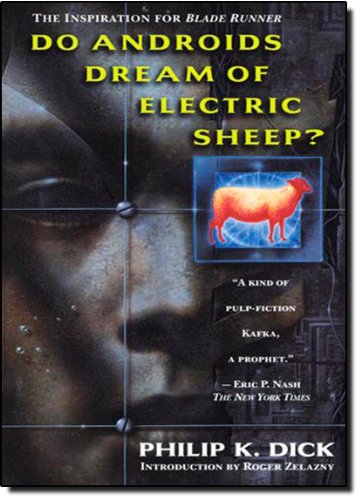Do Androids Dream of Electric Sheep?
“The most consistently brilliant science fiction writer in the world.”–John Brunner THE INSPIRATION FOR BLADERUNNER. . . Do Androids Dream of Electric Sheep? was published in 1968. Grim and foreboding, even today it is a masterpiece ahead of its time. By 2021, the World War had killed millions, driving entire species into extinction and sending
“The most consistently brilliant science fiction writer in the world.”
–John Brunner
THE INSPIRATION FOR BLADERUNNER. . .
Do Androids Dream of Electric Sheep? was published in 1968. Grim and foreboding, even today it is a masterpiece ahead of its time.
By 2021, the World War had killed millions, driving entire species into extinction and sending mankind off-planet. Those who remained coveted any living creature, and for people who couldn’t afford one, companies built incredibly realistic simulacrae: horses, birds, cats, sheep. . . They even built humans.
Emigrées to Mars received androids so sophisticated it was impossible to tell them from true men or women. Fearful of the havoc these artificial humans could wreak, the government banned them from Earth. But when androids didn’t want to be identified, they just blended in.
Rick Deckard was an officially sanctioned bounty hunter whose job was to find rogue androids, and to retire them. But cornered, androids tended to fight back, with deadly results.
“[Dick] sees all the sparkling and terrifying possibilities. . . that other authors shy away from.”
–Paul Williams, Rolling StoneDo Androids Dream of Electric Sheep? is a book that most people think they remember and almost always get more or less wrong. Ridley Scott’s film Blade Runner took a lot from it, and threw a lot away. Wonderful in itself, the film is a flash thriller, whereas Dick’s novel is a sober meditation. As we all know, bounty hunter Rick Deckard is stalking a group of androids who have returned from space with short life spans and murder on their minds–where Scott’s Deckard was Harrison Ford, Dick’s is a financially strapped municipal employee with bills to pay and a depressed wife. In a world where most animals have died, and pet keeping is a social duty, he can only afford a robot imitation, unless he gets a big financial break.
The genetically warped “chickenhead” John Isidore has visions of a tomb-world where entropy has finally won. And everyone plugs in to the spiritual agony of Mercer, whose sufferings for the sins of humanity are broadcast several times a day. Prefiguring the religious obsessions of Dick’s last novels, this book asks dark questions about identity and altruism. After all, is it right to kill the killers just because Mercer says so? –Roz Kaveney, Amazon.co.uk


![Endless Love (2014) [HD]](http://shop.etroop.com/wp-content/uploads/2014/05/51Dh3kPxXAL.jpg)


![iPhone Charger Syncwire Lightning Cable – [Apple MFi Certified] 6.5ft for iPhone Xs, Xs Max, XR, X, 8, 8 Plus, 7, 7 Plus, 6s, 6s Plus, 6, 6 Plus, SE, 5s, 5c, 5, iPad Mini, iPad Air, iPad Pro, iPod](http://shop.etroop.com/wp-content/uploads/2018/11/41y-hR-OwjL.jpg)

Comments